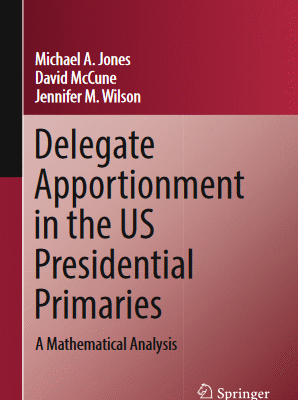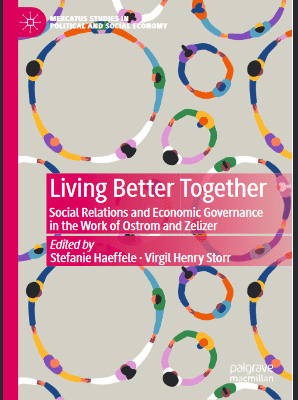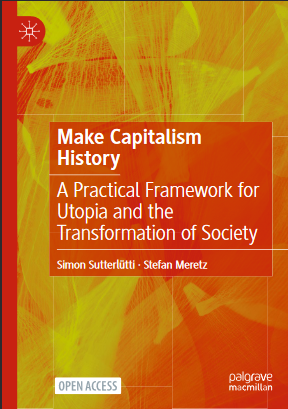

خرید و دانلود نسخه کامل کتاب Make Capitalism History A Practical Framework for Utopia and the Transformation of Society – Original PDF
64,500 تومان قیمت اصلی 64,500 تومان بود.37,500 تومانقیمت فعلی 37,500 تومان است.
تعداد فروش: 47
Author:
Simon Sutterlütti • Stefan Meretz
1 CHAPTER 1 Introduction 1 YesterdaY, todaY, tomorrow, the daY after tomorrow We say goodbye to traditional Marxism. For a long time, its utopia of a free society was linked to a concrete practice of transformation. This age and its accompanying hopes have passed. However, emancipatory move- ments have not rested. They exist in abundance: interventions critical of racism, queer-feminist free spaces, ecological practices of daily life, antisex- ist struggles, political demonstrations, antifascist education, campaigns against transphobia and homophobia, reflections on ableism and ageism,1 cooperatives, commune and housing projects, eco-villages, international solidarity, trade-union struggles and so on. Emancipatory movements detect and reflect on many new forms of domination and discrimination— and search for practices to overcome them. They disengage from statist (plan-) utopias and their hopes based on the “state as an instrument”. However, they have found neither a new utopia nor a new theory of trans- formation. Although some movements—above all that of 1968, as well as the environmental and women’s movements—have greatly influenced society as a whole, a new consistent idea on how to overcome capitalism has not been developed. Lip service has very often been paid to reform 1 Ableism and ageism refer to discrimination against handicapped and elderly people respectively. © The Author(s) 2023 S. Sutterlütti, S. Meretz, Make Capitalism History, https://doi.org/10.1007/978-3-031-14645-9_1 2 and revolution—the old concepts of transformation. However, their promise of emancipatory change under the conditions of party structure, of taking power and changing the state is no longer convincing. Therefore, emancipatory movements have often retreated to daily practices. Many forms of domination such as sexism and racism, ableism and ageism, trans- phobia and homophobia have been tackled at the interpersonal level. Changes of societal norms, of politics and culture have also been brought about. The environmental movement has raised awareness on transgen- erational problems: we are destroying our conditions of life and those of future generations. Individual alternatives are practised—different eating habits, different consumer behaviour, energy efficiency, no-flight policy— thus achieving political change. Ever so often, applied societal alternatives raise the issue of whether criticism of underlying power relations can be elevated to an overall societal level in order to reach beyond minuscule changes within the framework of capitalism. Again and again, disillusion- ment prevails, the feeling that the structures of domination and exclusion within capitalist society cannot be overcome. An extended perspective of surmounting capitalism remains vague. We intend to utilise the insights and concepts of emancipatory move- ments and re-establish a utopian goal. Thus, we try to create a connection between diverse practices of everyday life and making capitalism history. In the course of recent decades this connection has become shredded, it seems fickle and loose. Our emancipatory practice appears to have out- grown the old forms of party, state and seizure of power, without having found new forms for an overall societal transformation. Many of us are looking for new answers, and this book intends to contribute to this search. New answers to the problems of utopia and transformation con- tribute to the establishment of new criteria for practice. At the end of this book (Chap. 7, 4) we would like to suggest some ideas; however, we are convinced that each one is best qualified to find one’s own criteria in the context of a theory of transvolution. We are also convinced that emancipa- tory practice requires reflection on utopia and transformation. It must regain a theoretical framework exceeding capitalism if it is to develop its full potential. 1.1 Hopelessness The point is to overcome capitalism; however, how should we do it? Today, this issue leads to hopelessness, and this hopelessness is due to S. SUTTERLÜTTI AND S. MERETZ 3 three aspects: first, apart from the all-pervading power of capitalism, the main historical adversary of capitalism—communism—experienced a cata- strophic defeat in the twentieth century. Any serious perspective of transi- tion must learn from this defeat. Second, there is no well-founded and systematic theory of a societal alternative. Followers of Computer Socialism (Cockshott and Cottrell 2012), of Parecon2 (Albert 2003), of the twenty- first-century Socialism (Dieterich 2006) and other concepts simply revive socialist ideas. Others see the freed society only as “the other”, indeter- minable and completely different. Third, the concepts of transvolution are patchy, the question of how to develop the free society rarely finds an answer and most of the answers that are given remain bound to the politi- cal concepts of revolution or reform, which aim at the state. Communism has lost its innocence. A hundred years ago this book would have been one of many filled with hope for a better world, with faith in an emancipatory future of the revolution, with trust in human pos- sibilities. That perspective of trust and hope capsized in the storms of the twentieth century. Revolutionary faith cracked when the Russian Revolution opened fire on the Kroonstad sailors,3 their antiauthoritarian revolutionaries, in 1921. Faith disappeared when Stalin proclaimed the “Great Terror”4 in 1936, when German antifascists fleeing their country were extradited to the Nazi state by the Soviet Union, when Mao justified the consequences of the “Great Leap Forward”,5 when the Red Khmer drove the intellectuals to the countryside.6 Hope for a better world was deprived of its images, its paths were destroyed; confronted with reality, hope had gone crazy. Hope became hollow and, as vain hope, it either stuck to the existing socialist alternative until 1989 or—in a reformist wait-and-see 2 Parecon (Participatory Economics) is a concept of an economy with comprehensive participation. 3 With the slogan “All power to the Soviets—no power to the Party” the rebellious sailors turned against the dictatorial rule of the Communist Party of Russia. The island fortress Kroonstad, occupied by the sailors, was taken by the Red Army. Many rebels were executed or interned in camps. 4 The “Great Terror” was a campaign of persecution against suspected opponents of Stalin’s rule from autumn 1936 to the end of 1938. 5 The “Great Leap Forward” was a campaign in China from 1958 to 1961 initiated by Mao Zedong, which resulted in a severe famine. 6 The Red Khmer were a Maoist-nationalist movement in Cambodia from 1975 to 1979 who forcibly tried to establish a form of agriculture-based communism. The expulsions involved are today considered as genocide. 1 INTRODUCTION 4 fashion—made itself comfortable within a lack of direction and path. The prospect of a bright future lingered on as a spark. However, it lacked the substance needed to ignite. Those who are still concerned with practically overcoming capitalism and establishing a free society must justify them- selves to history, they must trace past atrocities to their source and analyse them; only then can they fill the void of hopelessness (cf. Adamczak 2007). 1.2 The Old and the Empty Utopia It is impossible to consciously achieve a goal that is vague. Thus, the old communist movement also had a concept of utopia. It was essentially dominated by the idea of what to abolish: priva



نقد و بررسیها
هنوز بررسیای ثبت نشده است.